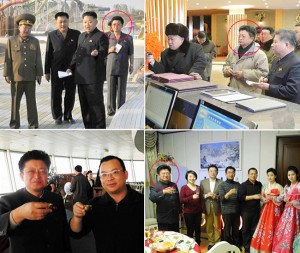Yonhap reports that China – DPRK trade appears unaffected by the purge of Jang Song-thaek. According to the article:
Despite North Korea’s stunning execution of the leader’s uncle in December, its trade with China remained solid in January, up 16 percent from a year earlier, data showed Friday.
Jang Song-thaek, the country’s No. 2 man and leader Kim Jong-un’s uncle, had played an important role in dealing with Beijing before being executed late last year on treason charges. The political upheaval raised concerns over a possible instability that could spill over into other areas of the reclusive country’s moribund economy and society.
Still, trade volume between North Korea and its major trading partner China came to US$546 million in January, compared with $471 million from a year earlier, according to the data compiled by the Korea International Trade Association (KITA).
North Korean exports to China jumped 18 percent on-year to $223 million, with imports rising 14.5 percent to $323 million, the data showed.
Anthracite was the No. 1 export item for the impoverished country to its communist neighbor, selling some $101 million worth of the natural resource last month, up 21.3 percent from a year ago.
North Korea’s anthracite exports are a major source of income, and China is virtually the only destination for the shipments.
Inbound shipments of China-made cell phones soared 28 percent on-year to $14.4 million in January, the data showed.
“Trade volume between the two countries is expected to rise further given China’s growing demand for minerals for its project to develop its three northeastern provinces of Heilongjiang, Jilin and Liaoning,” said Lim Eul-chul, a research professor at Kyungnam University.
“Such political variables as Jang’s execution would not likely affect the trend,” he added.
The heavily sanctioned North Korea has been increasingly reliant on China, though the Asian giant has become frustrated with its wayward neighbor, particularly after Pyongyang’s third nuclear test early last year.
In 2013, trade volume between the two reached a record $6.45 billion last year, up 10.4 percent from the previous year, according to KITA data.
The Wall Street Journal notes:
“Bilateral trade has probably yet to feel the impact of Mr. Jang’s execution,” said Cho Bong-hyun, research fellow at Seoul-based IBK Economic Research Institute.
“Both sides are still acting on trade contracts that have already been signed and usually take effect for six months,” Mr. Cho said.
Mr. Cho said he expects the impact from Mr. Jang’s purge will begin to appear in the data from the second quarter of this year. North Korea may also increasingly turn to trade with South Korea following a thawing of ties and the reopening of a jointly run Kaesong industrial park, he said.
The KITA data show inter-Korean trade volume shrank 42% to an eight-year low of $1.15 billion last year, when the Kaesong complex was closed for several months after North Korea pulled out its workers.
North Korean-Chinese trade volume hit a record high of $6.54 billion last year, according to KITA, as North Korea exported natural resources such as coal and iron ore, while importing fuel and electronics goods.
The Korea Trade-Investment Promotion Agency, Seoul’s state-funded trade agency, said in a report last year that North Korea’s bilateral trade with China accounted for 88% of Pyongyang’s entire external trade in 2012, up from 53% in 2005.
Read the full stories here:
N. Korea, China trade unaffected by stunning execution: data
Yonhap
2014-2-28
Jang Purge Yet to Hurt North Korea-China Trade
Wall Street Journal
Kwanwoo Jun
2014-2-28

